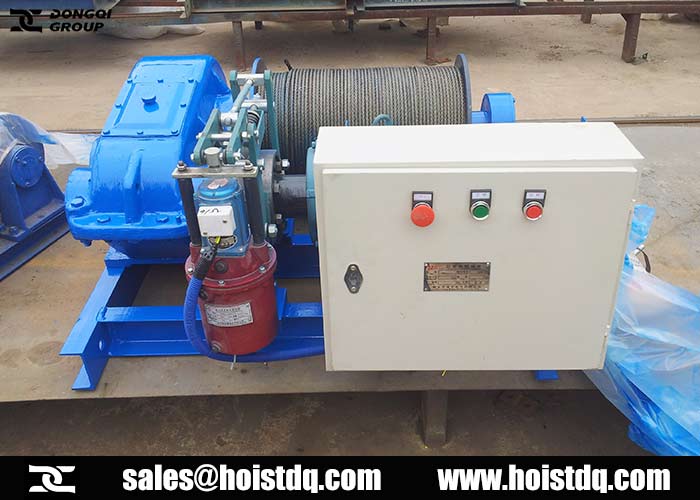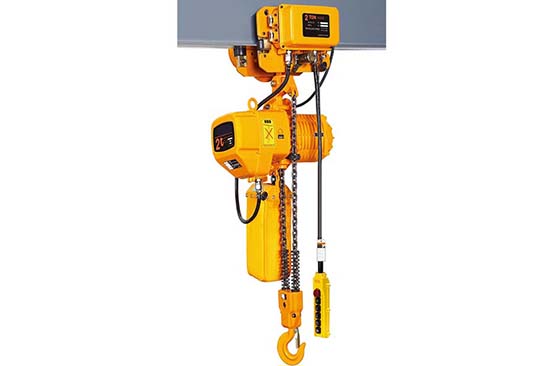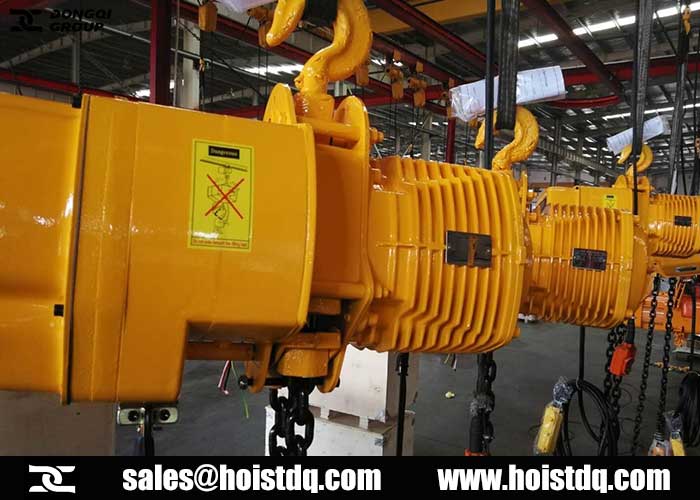The Volts level of the power network is divided into three categories.
- The first category: 1 KV and above 1 KV Volts is called high pressure, such as 1 KV ,3 KV ,6 KV, 10 KV ,35 KV ,110 KV ,220 KV ,330 KV ,500 KV;
- The second category: below 1 KV Volts is called low pressure, such as 220 V, 230 V, 380 V, 415 V, 660 V;
- The third category: below 50 V Volts is called safe Volts, such as 12 V, 24 V, 36 V, 48 V. So the hoist power supply Volts is low pressure and control Volts is safe Volts.

The requirement of electric hoist power supply use 3P +PE power supply system (3P is Power supply wire, PE is ground wire), stressed to provide the ground wire, the track will not be used as a ground protection circuit. Under normal operating conditions, the Volts fluctuation at the access point of the lifting machinery shall not exceed 5% of the rated value.
In the power system of the world, there are two kinds of power frequency, one is 50 Hz, and the one is 60 Hz. Industrial Volts is different in each country, for example it is 3 phases, 380 V, 50 HZ in China, but in Philippines it 3 phases, 220 V ,60 HZ. Although both are located in Asia, and the distance is very close, but there is a great difference between the Volts and frequency. The maximum safe Volts for human is 50 V. So the control Volts must be less than 50 V.
The civilian electric hoist volts is single phase and the frequency is the same with industrial frequency. Usually the industrial Volts is 1.73 times the civilian Volts.
Common industrial Volts and civilian Volts for reference
| Country | Industrial Volts | Civilian Volts |
| China | 380 V-50 HZ/td> | 220 V-50 HZ |
| UK | 400 V-50 HZ | 230 V-50 HZ |
| Malaysia | 415 V-50 HZ | 240 V-50 HZ |
| Singapore | 400 V-50 HZ | 230 V-50 HZ |
| Saudi Arabia | 380 V-60 HZ | 220 V-60 HZ |
| United Arab Emirates | 380 V-50 HZ | 220 V-50 HZ |
| Mexico | 460 V-60 HZ | 220 V-60 HZ |
| Chile | 380 V-50 HZ | 220 V-50 HZ |
| Egypt | 380 V-50 HZ | 220 V-50 HZ |
| New Zealand | 415 V-50 HZ | 240 V-50 HZ |
| Brazil | 380 V-60 HZ | 220 V-60 HZ |
| Algeria | 400 V-50 HZ | 230 V-50 HZ |
In use process, electric hoist is hard to avoid failure. In order to do well to the safe operation of electric hoist, timely and accurately process all kinds of faults has become an important part of construction production.
Power supply fault and analysis
| Fault | Main cause | Elimination methods |
| Press the button, the motor doesn’t work | 1. Not connect to the power supply 2. Lack of phase 3. The power supply Volts is too low |
1. Connect to the power 2. Check main loop and control loop 3. Adjust the power supply Volts |
| When Press the button, the motor start reluctantly and large noise, and it can’t afford to load | The power supply Volts is too low | Adjust the power supply Volts |
| The hoist shell is charged or traveling motor has grunts | 1. I steel off ground 2. The electrical box shell off ground 3. Motor or electrical devices have insulation damage |
1. I steel grounding 2. Check whether the beams tread has poor electrical conductivity things, should be cleared 3. Check and repair the insulation damage location |
When the motor Volts and frequency don’t match with power network Volts and frequency, the motor will be easy to burn. So if you want to buy a hoist, please tell us the correct Volts and frequency. Please also check our electric hoist products for different Volts.
Electric hoists offering
| Item | wire rope electric hoist | Electric chain hoist | mini electric hoist |
| Figure |  |
 |
 |
| Phase | Three phases | Three phases or single phase | Single phase |
| Volts | As your request | As your request | 220 v/230 v |
| Control Volts | 24 V/36 V/48 V | ||
| Frequency | 50 HZ or 60 HZ | ||
| Electric brand | Chint (China)/ Schneider(France)/ Siemens(Germany) | ||
More information about Dongqi electric chain hoist or electric rope hoist, please contact us.


